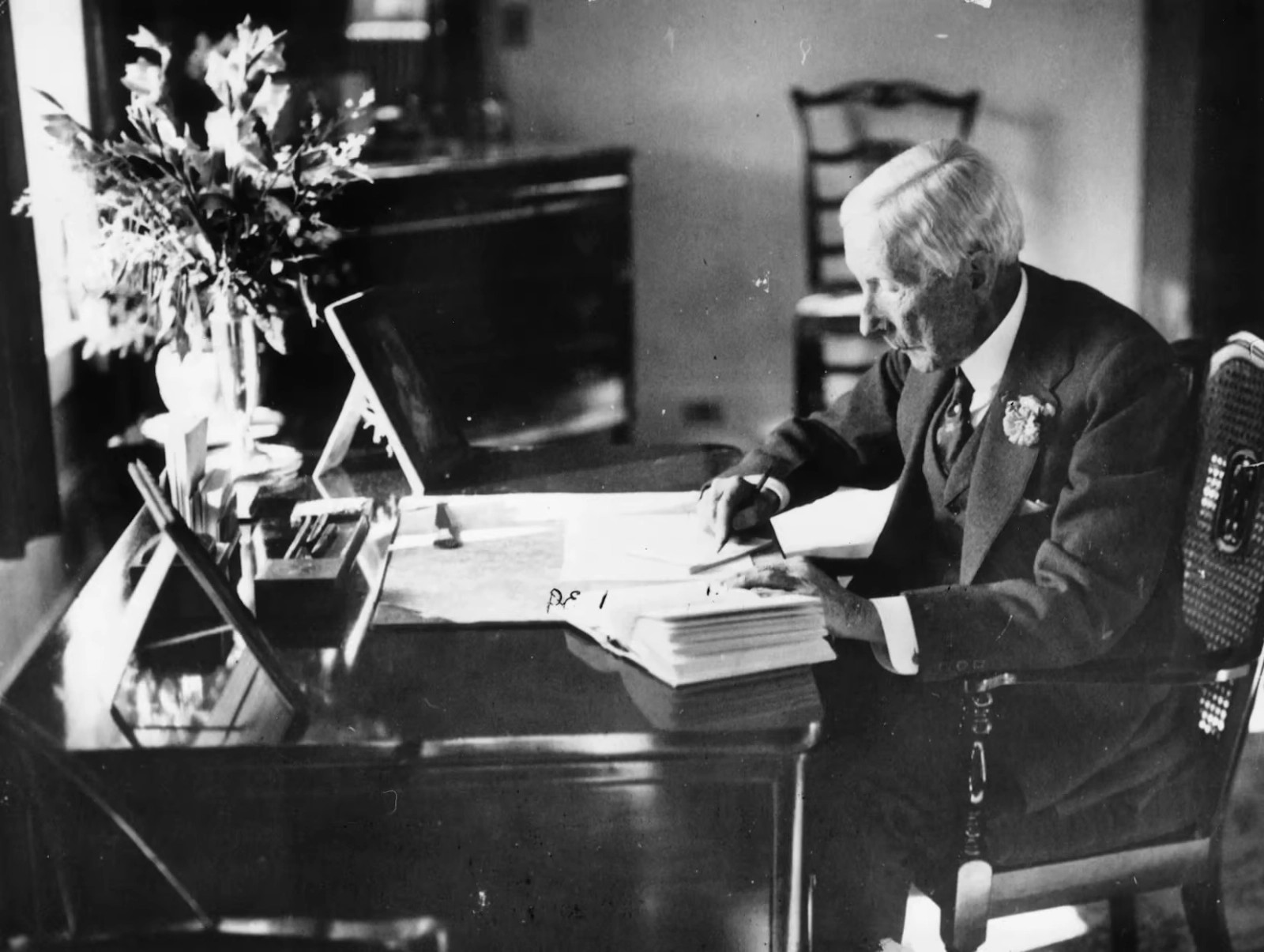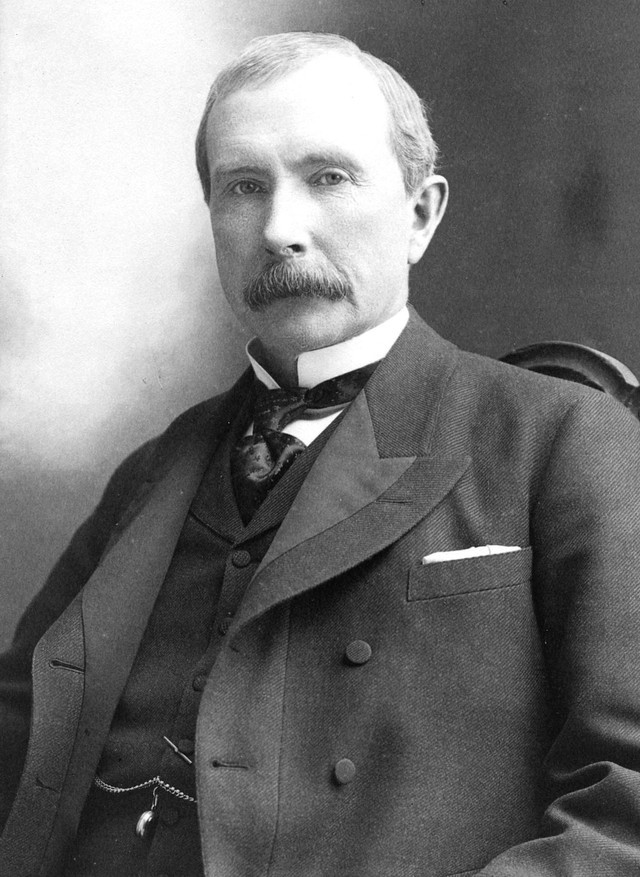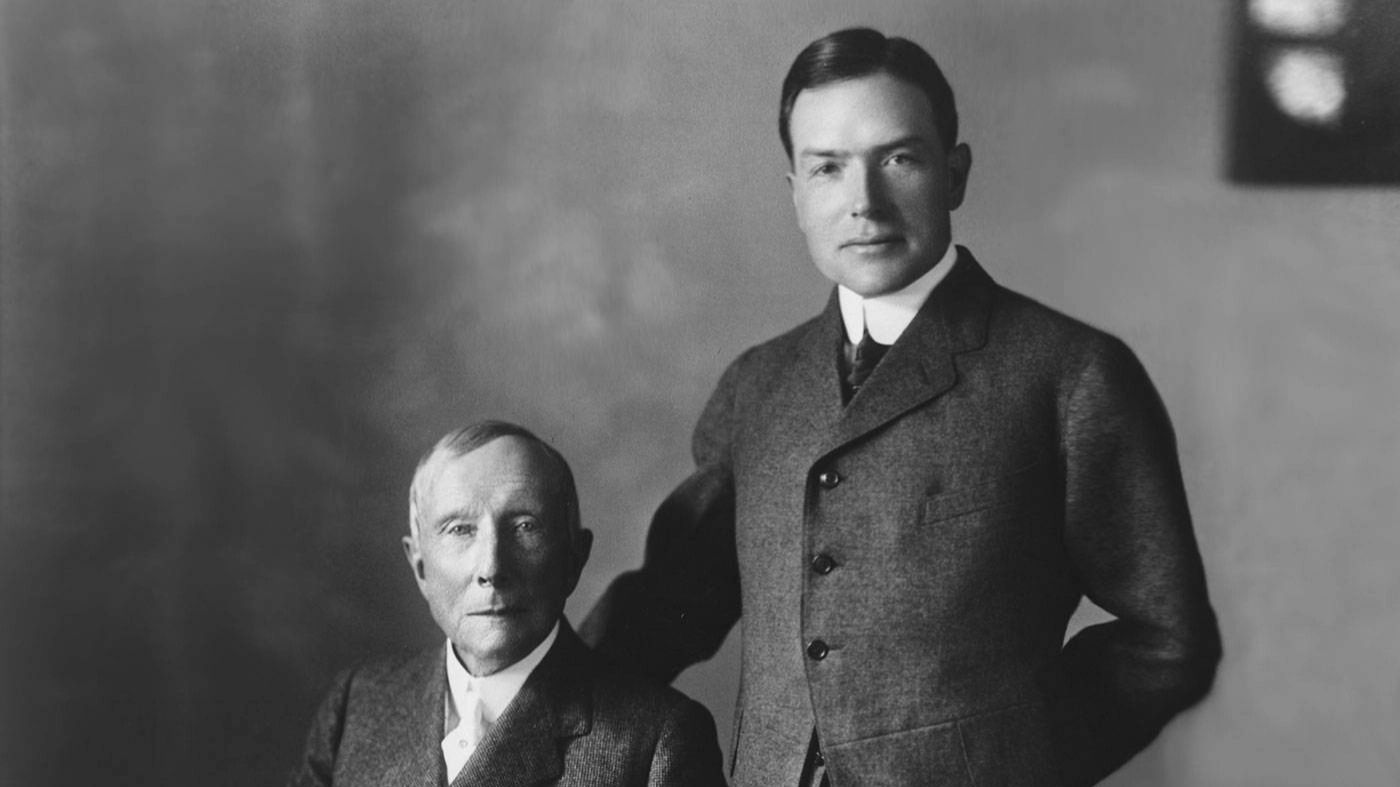Once told he would only live to 48, the American oil king lived an additional 50 years thanks to a lifelong secret: His descendants all received great benefits by following his example

In the eyes of others, he was a passionate and dedicated person, but only he knew how exhausted he truly was. One day, the company needed to send someone to Africa for a survey. Rockefeller decided to go himself, and this trip to Africa changed his life. On the way, their vehicle unfortunately got stuck in a mud puddle. Rockefeller and the local guide went into a nearby village to seek help. There were many locals idly sitting around, so Rockefeller's group cheerfully proposed that if they could help pull the vehicle out, he would pay them handsomely. Surprisingly, the villagers all refused. No matter how much he raised the payment, they simply said, "It's winter now." A local in Rockefeller's group explained that the people here were entering winter, and during winter, they did not need money.
Rockefeller did not understand what winter had to do with money. "The people here live according to the natural laws: 4 seasons in a year. Because crops are sown in spring, cultivated in summer, harvested in autumn, and stored in winter, people need to do the same. Spring is for planting and preparing for hunting, summer is for taking care of crops and hunting; autumn is for harvesting and catching the last mature prey; winter is for resting, not working. Since they have stored a lot of food throughout the year, they can sustain their families during winter. Everyone just stays home to rest, socialize, and chat with others during that time," this person explained. Rockefeller was very surprised. If they did not work hard, how could they live abundantly and prosperously? However, the villagers only said, "Don't violate the natural laws for money, and miss out on many opportunities to experience life. Our lives have many springs, summers, autumns, and winters, while how many springs, summers, autumns, and winters will you have in your life?"
They also warned Rockefeller that if he did not change his attitude towards life, he might not even have the chance to experience a second spring. This statement startled Rockefeller. Indeed, during his childhood, he constantly worked extra hours outside of school to earn a little money; that was the spring phase preparing for the future. In his youth, he worked tirelessly to establish the oil company; that was summer. In middle age, he reaped the rewards, becoming the richest man in America; that was the autumn of harvesting all achievements. But now, had he entered the only and final winter? Reflecting on this, Rockefeller decided to change his lifestyle. He was determined to seize a second spring, wanting to experience many springs, summers, autumns, and winters, rather than having just one cycle of four seasons in his entire life. After returning to America, Rockefeller made a decision that surprised many. He decided to donate at least 1 million US dollars to charity each year. Before he died, he wanted to donate most of his wealth.
First, he donated money to many areas in Africa, then he donated a large amount of assets to various charities around the world, mainly for education, disease eradication, and ensuring medical care. That winter, Rockefeller donated over 1 million dollars. Notably, he did not strive to earn back that money as he had before. Instead, he found joy in his soul. With his mind freed from financial pressure, Rockefeller slept very well, and his body began to recover miraculously. When winter passed, the second spring arrived, and Rockefeller felt his health significantly restored. He then began to reopen his income channels. From then on, every winter, Rockefeller donated a certain amount of money and even established a huge international fund called The Rockefeller Foundation. Rockefeller passed on the "four seasons of the year" secret to his descendants. Both his son and grandson followed their father's teachings. Later, they all became famous philanthropists. Before he passed away, Rockefeller donated 95% of his wealth, leaving only over 20 million US dollars for his son. Rockefeller originally thought he would only live another 5 years, but he ultimately lived to be 98 years old. His son and grandson, who also followed this principle, lived to be 87 and 95 years old, respectively.
All good and right, who knows early the path of life "smooth sailing"

1. The law of human hearts
High salaries can attract talent but cannot buy hearts. With good treatment, along with trust and respect, anyone will do everything practically. Employees may not remember how much bonus they received five years ago, but they will always remember the care and praise from their boss back then. In terms of management, Rockefeller had an important rule of conduct: empathize with others. He never relied on money and status to suppress them but supported each other on the premise of mutually beneficial cooperation.
2. The law of effectiveness
One person can go fast, but a group can go further. Excellent managers do not evaluate employees based on personal preferences because they value effectiveness over their own likes. Rockefeller had a subordinate with many flaws, such as heavy drinking, but who was extremely eloquent, adaptable, and had great leadership skills. Rockefeller believed these were essential qualities for running a business, so he promoted that subordinate. And this subordinate responded to Rockefeller's trust by correcting his flaws and focusing on developing his strengths. Everyone likes to do something they enjoy or are good at and feel a sense of achievement from it. It is hard to expect an unpassionate employee to perform well. Finding employees' strengths and talents and inspiring them to do what they love is how Rockefeller utilized people.
3. The law of compromise
Only those who can endure what ordinary people cannot achieve great accomplishments. Impulsiveness is the enemy of a career. There are too many people and things in this world that demand our patience. You must learn to manage your emotions and not let feelings affect your judgment. In the early days of business, Rockefeller's partners introduced a noble investor, and both conspired to oust Rockefeller from the company. Knowing this, Rockefeller was also upset, but he calmly restrained his emotions. Rockefeller worked hard as if nothing had happened. Three years later, he used his own strength to force the investor out of the company. Of course, compromise is not an unprincipled concession. If patience can resolve conflicts and help achieve goals, then patience is necessary. Compromise is actually a practical and flexible wisdom.
4. The law of belief
Knowledge is more important than wealth, and you are the best investment target for yourself. Jack Ma said that ordinary people believe because they see, and successful people see because they believe. If we think we cannot do something well, then subconsciously our brain will provide many different reasons why we cannot do it. If we are optimistic about achieving our goals, then the subconscious will automatically seek the path to achieve them. Therefore, believe in the power of belief.
5. The law of friendship
Your value is the average of the 6 people you interact with the most. Although this is not entirely accurate. When young, it is best not to befriend two types of people: The first type is those who enjoy idleness and lack ambition. Think about living a leisurely life, only complaining when facing difficulties, surrendering to fate, and calling it beautifully "just take everything as it comes." The second type is those who give up halfway. Perhaps they once wanted to do something great, but practical problems gradually wore down their will and spirit of daring to think and act. They lack talent but fall into a comfort zone and do nothing throughout their lives. Your circle of friends greatly influences your personality and ambitions. Therefore, who you are is not important; what matters is who you are with.
6. The law of the glass heart
If you want to achieve excellence, you must let go of inherent prejudices. Rockefeller was born into poverty; when he was in middle school, he took a photo with his classmates. At that time, hiring a professional photographer was still a special honor. Rockefeller was very excited and was thinking of how to pose, but the photographer took him out because he was dressed sloppily and did not match the wealthy classmates around him. At that moment, he clenched his fists and silently vowed, "One day, I will become the richest person in the world. What does it mean to be a photographer? I will ask a painter to draw my portrait!" and he later achieved that. This story tells us that being looked down upon can also be a motivation for growth. Many times we are underestimated because our abilities do not match our ambitions; our dignity is not granted by others but must be created by ourselves.
